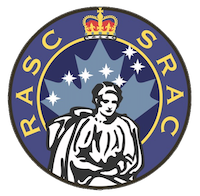Sir Harold Spencer Jones KBE FRS (29 March 1890 Kensington, London – 3 November 1960) was an English astronomer. Although born "Jones", his surname became "Spencer Jones".
In 1913 he became Chief Assistant at the Royal Greenwich Observatory. In 1933 he became Astronomer Royal. He was president of the International Astronomical Union from 1945 to 1948.
He determined the solar parallax from observations of 433 Eros during its close approach in 1930–1931.
Spencer Jones's successor as Astronomer Royal was Richard Woolley, who on taking up the position in 1956 responded to a question from the press by saying, "Space travel is utter bilge". Similarly, it is often stated that Spencer Jones himself had a strong disbelief in the practicalities of space flight, and that he famously said, "space travel is bunk" only two weeks before the Sputnik launch in October 1957. However, there is no evidence that he did in fact say this, then or at any other time.
Awards
- Gold Medal of the Royal Astronomical Society (1943)
- Royal Medal (1943)
- Bruce Medal (1949)
- Gold medal of the British Horological Institute (1946)
Named after him
- The crater Spencer Jones on the Moon
- The crater Jones on Mars
- Asteroid (3282) Spencer Jones
Sir Harold was elected an honorary member of the Royal Astronomical Society of Canada on 1947-01-17. In the same year he contributed "Tercentenary of John Flamsteed (1646-1719)" to the Journal of the RASC.
Lectures
In 1944 Spencer Jones was invited to deliver the Royal Institution Christmas Lecture on "Astronomy in our Daily Life". On 1955-05-07 Sir Harold gave a joint lecture to the Royal Canadian Institute, the Royal Meteorological Society (Canadian Branch) and the RASC at Convocation Hall in Toronto entitled "Life on Other Worlds".
Surname:
Spencer Jones
Title/Given Name:
Sir Harold
Nation(s):
United Kingdom
Start:
1947
End:
1960

